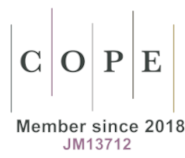The Politics of Location and Sexuality in Leila Ahmed’s and Nawal El Saadawi’s Life Narratives
DOI:
https://doi.org/10.2478/ipcj-2014-0003Keywords:
Women’s life narratives, Middle East, female circumcision, gender, class, location, IslamAbstract
This article explores Leila Ahmed’s A Border Passage, and Nawal El Saadawi’s Memoirs from the Women’s Prison, A Daughter of Isis, and Walking Through Fire. It contrasts their works and argues that location and genderawareness play an important role in the writing of autobiographies. The focus is on showing how El Saadawi’s positioning as a feminist activist in Egypt and Ahmed’s location in the USA determine the texts’ themes and shape the construction of the autobiographical “I.”
Downloads
References
Ahmed, Leila. “Western Ethnocentrism and Perceptions of the Harem.” Feminist Studies 8: 521-34. Print.
Google Scholar
Ahmed, Leila. A Border Passage: From Cairo to America–A Woman’s Journey. New York: Penguin, 1999. Print.
Google Scholar
Al-Hassan Golley, Nawar. Shahrazad Tells her Story: Reading Arab Women’s Autobiographies. Austin: University of Texas Press, 2003. Print.
Google Scholar
Al-Hassan Golley, Nawar. Ed. Arab Women’s Lives Retold: Exploring Identity Through Writing. New York: Syracuse University Press, 2007. Print.
Google Scholar
Anderson, Linda. Autobiography. London: Routledge, 2001. Print.
Google Scholar
Boehmer, Elleke, “Postcolonial Literary Studies: A Neo-Orientalism?” Oriental Prospects: Western Literature and the Lure of the East, ed. C. C. Barfoot and Theo D’Haen. 239-46. Amsterdam: Rodopi, 1998. Print.
Google Scholar
Chow, Rey. Writing Diaspora: Tactics of Intervention in Contemporary Cultural Studies. Bloomington: Indiana University Press, 1993. Print.
Google Scholar
de Lauretis, Teresa. Alice Doesn’t: Feminism, Semiotics, Cinema. Bloomington: Indiana University Press, 1984. Print.
Google Scholar
Eagleton, Terry. Literary Theory: An Introduction. Oxford: Blackwell, 1996. Print.
Google Scholar
El Saadawi, Nawal. Memoirs from the Women’s Prison. Trans. Marilyn Booth, London: The Women’s Press, 1986. Print.
Google Scholar
El Saadawi, Nawal. A Daughter of Isis: An Autobiography of Nawal El Saadawi. trans. Sherif Hetata, London: Zed Books, 1999. Print.
Google Scholar
El Saadawi, Nawal. Walking Through Fire: The Life of Nawal El Saadawi. trans. Sherif Hetata, London: Zed Books, 2002. Print.
Google Scholar
El Saadawi, Nawal. “Gender, Islam, and Orientalism: Dissidence and Creativity.” Women: A Cultural Review 6, no 1: 1-17. Print.
Google Scholar
Foucault, Michel. “The Discourse on Language.” The Continental Philosophy Reader. Ed. Kearney and Rainwater, New York and London: Routledge, 1996. Print.
Google Scholar
Gagnier, Regina. Subjectivities: A History of Self-Representations in Britain, 1832-1920. New York: Oxford University Press, 1991. Print.
Google Scholar
Gilmore, Leigh. Autobiographics: A Feminist Theory of Women’s Development. Cambridge: Harvard University Press, 1982. Print.
Google Scholar
Gunn, Varner Janet, “A Politics of Experience: Leila Khaled’s My People Shall Live: The Autobiography of a Revolutionary.” Decolonizing the Subject: The Politics of Gender in Women’s Autobiography. Ed. Sidonie Smith and Julia Watson, 65-80. Minneapolis: University of Minnesota Press, 1992. Print.
Google Scholar
Hartsock, Nancy. “The Feminist Standpoint: Developing the Ground for a Specifically Feminist Historical Materialism.” Discovering Reality. Ed. Sandra Harding and Merrill B. Hintikka, 283-310, Dordrecht: D. Reidel Publishing Company, 1983. Print.
Google Scholar
Harlow, Barbara. Resistance Literature. New York: Methuen, 1987. Print.
Google Scholar
Malti-Dougla, Fadwa. Men, Women, and God(s): Nawal El Saadawi and Arab Feminist Poetics. Berkeley: University of California Press, 1995. Print.
Google Scholar
Miller, Nancy K. Getting Personal. New York: Routledge, 1991. Print.
Google Scholar
Nicholson, Linda J. Feminism, Postmodernism. London: Routledge, 1990. Print.
Google Scholar
Smith, Sidonie, Julia Watson. Eds. Women, Autobiography, Theory: A Reader. Madison: University of Wisconsin Press, 1998. Print.
Google Scholar
Smith, Sidonie, Julia Watson. De/Colonizing the Subject: The Politics of Gender in Women’s Autobiographies. Minneapolis: University of Minnesota Press, 1992. Print.
Google Scholar
Smith, Sophie. “Interview With Nawal El Saadawi (Cairo, 29 January 2006)” Feminist Review 85, no 1: 59-69. Print.
Google Scholar
Spivak, Gayatri. “The Political Economy of Women as Seen by a Literary Critic.” Coming to Terms: Feminism, Theory, Politics. Ed. Elizabeth Weed, 218-229. New York: Routledge, 1989. Print.
Google Scholar
Vinson, Homsi Pauline, “Shahrazadian Gestures in Arab Women’s Autobiographies: Political History, Personal Memory, and Oral, Matrilineal Narratives in the Works of Nawal El Saadawi and Leila Ahmed,” NWSA Journal 20, no. 1 (Spring 2008): 75-98. Print.
Google Scholar
Williams, Raymond. Keywords: A Vocabulary of Culture and Society. Oxford: Oxford University Press, 1985. Print.
Google Scholar
Downloads
Published
How to Cite
Issue
Section
License

This work is licensed under a Creative Commons Attribution-NonCommercial-NoDerivatives 4.0 International License.

















